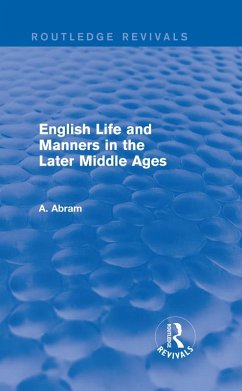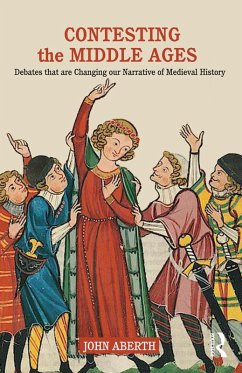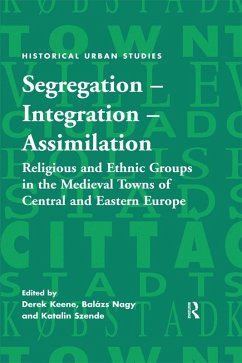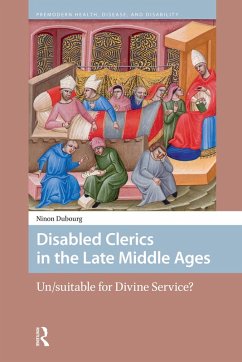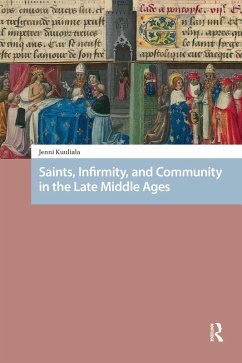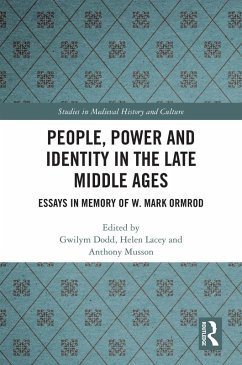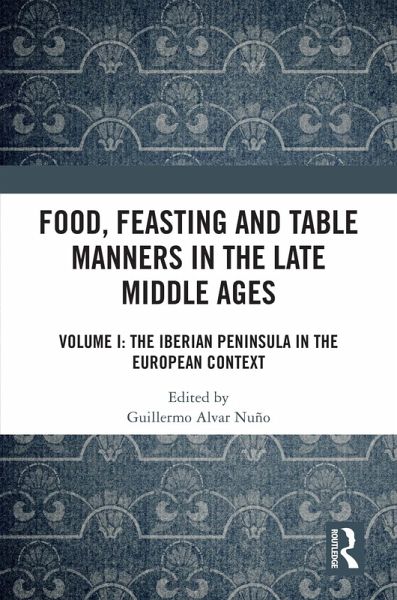
Food, Feasting and Table Manners in the Late Middle Ages (eBook, PDF)
Volume I: The Iberian Peninsula in the European Context
Redaktion: Nuño, Guillermo Alvar
Versandkostenfrei!
Sofort per Download lieferbar
42,95 €
inkl. MwSt.
Weitere Ausgaben:

PAYBACK Punkte
21 °P sammeln!
This book offers a study of what and how people ate in the Iberian Peninsula between the twelfth and fifteenth centuries.It has long been recognized that Mediterranean cultures attach great importance to communal meals and food cooked with great refinement. However, whilst medieval feasting in England, France and Italy has been thoroughly studied, Spain and Portugal have both been somewhat neglected in this area of study. This volume analyses how medieval men of the Iberian Peninsula questioned themselves about different aspects deemed important in social feasting. It investigates the acquisit...
This book offers a study of what and how people ate in the Iberian Peninsula between the twelfth and fifteenth centuries.
It has long been recognized that Mediterranean cultures attach great importance to communal meals and food cooked with great refinement. However, whilst medieval feasting in England, France and Italy has been thoroughly studied, Spain and Portugal have both been somewhat neglected in this area of study. This volume analyses how medieval men of the Iberian Peninsula questioned themselves about different aspects deemed important in social feasting. It investigates the acquisition of table manners and rhetorical skills, the interaction between medicine and eating, and the presence of food in literature and religion. The book also shows how this shared society and culture, as well as their attitude towards food, connected them to a Western European tradition.
The book will appeal to scholars and students alike interested in food and feasting from the perspectives of literature, history, language, art, religion and medicine, and to those interested in a social, cultural and literary overview of life in the Iberian Peninsula during the late Middle Ages.
It has long been recognized that Mediterranean cultures attach great importance to communal meals and food cooked with great refinement. However, whilst medieval feasting in England, France and Italy has been thoroughly studied, Spain and Portugal have both been somewhat neglected in this area of study. This volume analyses how medieval men of the Iberian Peninsula questioned themselves about different aspects deemed important in social feasting. It investigates the acquisition of table manners and rhetorical skills, the interaction between medicine and eating, and the presence of food in literature and religion. The book also shows how this shared society and culture, as well as their attitude towards food, connected them to a Western European tradition.
The book will appeal to scholars and students alike interested in food and feasting from the perspectives of literature, history, language, art, religion and medicine, and to those interested in a social, cultural and literary overview of life in the Iberian Peninsula during the late Middle Ages.
Dieser Download kann aus rechtlichen Gründen nur mit Rechnungsadresse in A, B, BG, CY, CZ, D, DK, EW, E, FIN, F, GR, HR, H, IRL, I, LT, L, LR, M, NL, PL, P, R, S, SLO, SK ausgeliefert werden.








